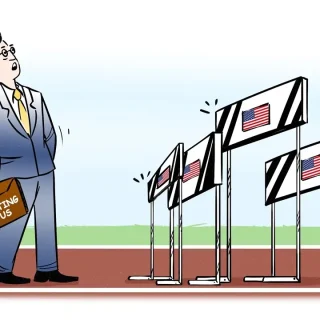Grenada’s Citizenship by Investment (CBI) program has long been recognized as one of the most reputable in the Caribbean, attracting investors seeking second citizenship, visa-free travel, and tax-efficient wealth planning. However, in a rapidly evolving investment migration landscape, maintaining credibility has become paramount.
In response to growing international scrutiny over the integrity of CBI programs, Grenada has taken decisive action against illegal financing arrangements in its program, rejecting multiple applications and even revoking previously granted citizenships. This move signals a firm commitment to compliance, transparency, and adherence to international regulatory standards, positioning Grenada as a model for other investment migration programs worldwide.
The Growing Need for Stricter Oversight in CBI Programs
Investment migration has faced increasing pressure from international regulatory bodies, including the European Union (EU), Financial Action Task Force (FATF), and Organisation for Economic Co-operation and Development (OECD), to tighten due diligence measures. The risks associated with illicit financing, opaque money flows, and security concerns have led to calls for reform in CBI programs worldwide.
Grenada’s latest enforcement actions align with these global expectations, ensuring that only genuine investors with transparent financial backgrounds gain access to its passport. This proactive stance helps mitigate risks that could otherwise threaten the program’s long-term viability.
Understanding Illegal Financing in CBI Programs
Illegal financing in CBI programs occurs when applicants misrepresent the source of their investment funds or use unauthorized third-party funding structures to secure citizenship. This can involve:
- Undisclosed third-party financing – where an applicant’s CBI investment is funded by an entity not listed in their application.
- Loans or financial arrangements that circumvent program rules – where funds are temporarily transferred to an applicant to satisfy the minimum investment requirement, only to be returned later.
- False source of wealth claims – where applicants provide misleading financial documents to hide the true origin of funds.

Such practices pose financial and security risks for host countries, making it easier for bad actors to gain access to a nation’s passport and banking system.
Grenada’s Enforcement Actions: Rejecting Applications and Revoking Citizenship
To combat illegal financing, Grenada has stepped up its due diligence process, leading to the rejection of multiple applications and even the revocation of citizenships where violations were detected post-approval.
This marks a significant shift in how Grenada enforces compliance, signaling to applicants, agents, and developers that there are real consequences for fraudulent financial arrangements. But for many within the industry, this action has been long overdue.
Richard Hallam from ORA Caribbean has been one of the strongest voices calling for stricter enforcement. He pointed out that this is the third time in five years that violations such as discounting, illegal financing, and inflated commissions have been discussed in industry meetings—yet no effective action was taken.
“It’s been five years since the committee has threatened action—both disciplinary and punitive—and clearly laid down the consequences of these fraudulent actions. Yet, no serious penalties have been enforced, and as a result, the perpetrators continue to ignore the agency’s repeated warnings.”
Hallam also criticized the lack of accountability for marketing agents and developers who knowingly process fraudulent applications.
“In this last circular, the applicants have been penalized, the sub-agents have been penalized, but there’s no mention of penalties for the marketing agents submitting these files, the local agents processing them, or the developers initiating the fraud in the first place. This undermines the program and the genuine developers trying to build legitimate projects.”
He further referenced a 2020 circular issued by Percival Clouden, which clearly stated that any buyback or rebate before the statutory five-year holding period is illegal and could lead to the revocation of project approval under Section 11 of the CBI framework.
Finally, after years of warnings and inaction, Grenada’s latest crackdown appears to be the first serious step in holding all parties accountable and restoring the integrity of its CBI program.
How This Impacts the Investment Migration Industry
- Stricter Compliance Becoming the Norm
Grenada is not alone in tightening its CBI regulations. Other Caribbean nations, including St. Kitts & Nevis and Dominica, have introduced higher investment thresholds and stricter due diligence measures to meet international standards. In Europe, Portugal and Ireland have already shut down their golden visa programs, while Greece and Spain have introduced stricter requirements for foreign investors.
These changes indicate a broader industry shift: countries are prioritizing program integrity over sheer application volume to maintain access to global markets.
- Increased Investor Confidence in Reputable CBI Programs
While stricter regulations may reduce the number of applicants in the short term, they boost long-term confidence in the CBI program. HNWIs (high-net-worth individuals) seeking second citizenship prefer programs with a strong reputation, as they ensure stability, legal security, and global mobility without concerns of future revocation.
- More Transparency and Accountability for Agents and Applicants
Investment migration agents and firms will now need to ensure full transparency in how applications are structured. This means:
- Stronger vetting of clients before submitting applications.
- Avoiding financing structures that do not comply with CBI program guidelines.
- Greater responsibility in documenting the legal source of funds.
Failure to adhere to these new expectations could lead to blacklisting or penalties for firms engaged in unethical practices.
What This Means for Investors and Agents
Grenada’s stricter enforcement is a wake-up call for both investors and industry professionals. Applicants must now:
- Ensure their funds are fully documented and meet legal requirements.
- Work only with licensed and reputable agents who comply with government regulations.
- Understand that compliance does not stop at approval—governments can revoke citizenship if rules are violated post-approval.
For investment migration professionals, this is a moment to reinforce credibility in the industry by prioritizing regulatory compliance over high application volumes.

Looking Ahead: The Future of CBI Programs
Grenada’s latest crackdown is part of a larger global trend toward higher transparency and stricter regulatory frameworks for CBI programs. With the EU and FATF closely monitoring Caribbean CBI schemes, other nations may follow suit in strengthening enforcement actions.
Rather than deterring investors, these changes are likely to attract serious applicants who value compliance and long-term stability. By reinforcing program integrity, Grenada is future-proofing its CBI program against potential international restrictions while maintaining its position as a leading investment migration destination.
Grenada’s Enforcement Actions: A Defining Moment for CBI Integrity
Grenada’s decisive actions against illegal CBI financing demonstrate its commitment to compliance, transparency, and long-term sustainability. By rejecting unauthorized applications and revoking fraudulently obtained citizenships, Grenada sets a new standard for accountability in the investment migration industry.
For investors, this means greater confidence in the legitimacy of the program. For the industry as a whole, it signals a shift toward higher scrutiny, ethical investment practices, and stronger due diligence frameworks.
As the global investment migration landscape evolves, compliance is no longer optional—it’s essential. Grenada’s stance ensures that CBI programs remain a credible, secure, and sustainable pathway for global investors seeking a second citizenship.










